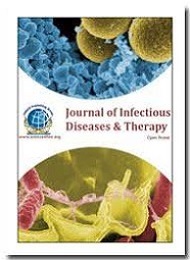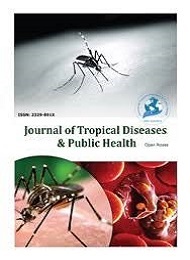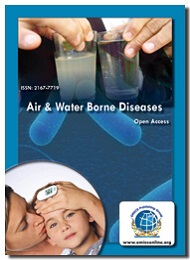Theme: Leading through the Expanding Horizons of Infection Prevention and Control
Infection Prevention 2022
We are looking forward to welcoming you back to London, UK, for the 18th World Congress on Infection Prevention and Control, which will be held on July 04-05, 2022
Theme: Leading through the Expanding Horizons of Infection Prevention and Control
The Infection Prevention 2022 Conference will focus on capturing new approaches and thinking, as well as the cornerstones of Infection Prevention and control with healthcare epidemiology; antimicrobial resistance and stewardship; IPC in long-term care and non-clinical settings; education, training, and staff development; community engagement and patient care.
The conference will again offer a unique forum for participants to exchange knowledge and experience in the prevention of healthcare-associated infections and control of antimicrobial resistance around the world.
The most resonating topics will be addressed including: Infection Prevention in the context of the COVID-19 pandemic, antimicrobial resistance, catheter-related bloodstream infection, quality of patient care, advanced methods in hospital epidemiology research and early results of major clinical trials in the field, improving prevention strategies using various implementation tools as well as social media, telemedicine, and simulation models.
The themes of the webinar will include the following topics:
Infection Prevention and Control, Covid_19 Infections, Causes and symptoms of infections, SARS Coronavirus, Infection Control Procedures, Global Trends in Emerging Infections, Global Market on Infections, Infection Control in Critical Care, Emerging and Re-Emerging Infections, Epidemiology of Emerging and Re-Emerging Infections, Immunizations.
Infection Prevention 2022 conference brings together leading academic Scientists, Pathologist, Microbiologist, Infectious Diseases Experts, Epidemiologists from universities and research institutions to exchange and share their experiences and research results on all aspects of Infection Prevention and Control. It also provides a premier interdisciplinary platform for researchers, practitioners and educators to present and discuss the most recent innovations, trends, and concerns as well as practical challenges encountered and solutions adopted in the fields of Infection Prevention and Control.
Target Audience
-
Infectious Diseases Experts
-
Pathologists
-
Infectious Diseases Specialists
-
Pharmacists
-
Epidemiologists
-
Health Care Professionals
-
Microbiologists
-
Bacteriologists
-
Virologists
-
Parasitologists
-
Mycologists
-
Infection Prevention and Infection Control Specialists
-
Infection Prevention Organizations & Companies
-
Immunologists
Why to Attend??
Infection Prevention 2022 is giving a worldwide stage to analysts that afford new insights into the concealed methods of Infection Control and Prevention. World-eminent speakers, guest of honours, and the most up to date upgrades are particular components of this gathering and with individuals from around the globe concentrated on finding out about uncommon illnesses and its advances. Infection Prevention 2022 conference is your best chance to achieve the biggest collection of members, conduct presentations, disseminate data, B2B meetings, meet with potential scientists, trade learning on late improvements and make an unmistakable imprint by invigorating development at this event.
Young Research’s Awards at Infection Prevention 2022
Infection Prevention 2022 is intended to honor prestigious award for talented Young researchers, Scientists, Young Investigators, Post-Graduate students, Post-doctoral fellows, Trainees, junior faculty in recognition of their outstanding contribution towards the conference theme. The Young Scientist Awards make every effort in providing a strong professional development opportunity for early career academicians by meeting experts to exchange and share their experiences on all aspects of Infection Prevention and Control.
Track 1: Infection Prevention and Control
Infection prevention and control (IPC) is a practical, evidence-based approach preventing patients and health workers from being harmed by avoidable infections. Effective IPC requires constant action at all levels of the health system, including policymakers, facility managers, health workers and those who access health services. IPC is unique in the field of patient safety and quality of care, as it is universally relevant to every health worker and patient, at every health care interaction. Defective IPC causes harm and can kill. Without effective IPC it is impossible to achieve quality health care delivery. Infection prevention and control effects all aspects of health care, including hand hygiene, surgical site infections, injection safety, antimicrobial resistance and how hospitals operate during and outside of emergencies.
Track 2: Covid_19 Infections:
Coronavirus disease (COVID-19) is an infectious disease caused by the SARS-CoV-2 virus. Most people infected with the virus will experience mild to moderate respiratory illness and recover without requiring special treatment. However, some will become seriously ill and require medical attention. Older people and those with underlying medical conditions like cardiovascular disease, diabetes, chronic respiratory disease, or cancer are more likely to develop serious illness. Anyone can get sick with COVID-19c and become seriously ill or die at any age. The best way to prevent and slow down transmission is to be well informed about the disease and how the virus spreads. Protect yourself and others from infection by staying at least 1 metre apart from others, wearing a properly fitted mask, and washing your hands or using an alcohol-based rub frequently.
Track 3: Causes and Symptoms of Infections
Infectious diseases are disorders caused by organisms such as bacteria, viruses, fungi or parasites. Many organisms live in and on our bodies. They're normally harmless or even helpful. But under certain conditions, some organisms may cause disease. Some infectious diseases can be passed from person to person. Some are transmitted by insects or other animals. And you may get others by consuming contaminated food or water or being exposed to organisms in the environment. Signs and symptoms vary depending on the organism causing the infection, but often include fever and fatigue. Mild infections may respond to rest and home remedies, while some life-threatening infections may need hospitalization.
Track 4: SARS Coronavirus
COVID-19 is caused by a virus called SARS-CoV-2. It is part of the coronavirus family, which include common viruses that cause a variety of diseases from head or chest colds to more severe (but more rare) diseases like severe acute respiratory syndrome (SARS) and Middle East respiratory syndrome (MERS). Like many other respiratory viruses, coronaviruses spread quickly through droplets that you project out of your mouth or nose when you breathe, cough, sneeze, or speak. The spike protein is the part of the virus that attaches to a human cell to infect it, allowing it to replicate inside of the cell and spread to other cells.
Track 5: Infection Control Procedures
Standard precautions are meant to reduce the risk of transmission of bloodborne and other pathogens from both recognized and unrecognized sources. They are the basic level of infection control precautions which are to be used, as a minimum, in the care of all patients. In addition to hand hygiene, the use of personal protective equipment should be guided by risk assessment and the extent of contact anticipated with blood and body fluids, or pathogens.
Track 6: Global Trends in Emerging Infections
Infectious diseases are now emerging or reemerging almost every year. This trend will continue because a number of factors, including the increased global population, aging, travel, urbanization, and climate change, favor the emergence, evolution, and spread of new pathogens.
Track 7: Global Market on Infections
The global infectious disease diagnostic market was valued at $23,321.99 million in 2020, and is estimated to reach $39,941.37 million by 2030, growing at a CAGR of 6.8% from 2021 to 2030. Infectious disease diagnosis is defined as a laboratory test, which is executed with the help of skilled technicians and physicians to diagnose infectious diseases. It is a diagnostic procedure in which the causative organism of an infectious disease is characterized and identified. The sample of urine, blood, mucus, or other body fluids are analyzed to provide information about the causative organism by the use of various diagnosis procedure and instruments.
Track 8: Infection Control in Critical Care
The intensive care unit (ICU) of the hospital has always been where the most vulnerable patients are kept, so they can be closely monitored and treated, often with a one-to-one ratio of nurse to patient, for the most scrupulous of care. Even with great advances in medical technology, these patients continue to be at the greatest risk for infections that are often avoidable by taking a few simple precautions. Healthcare workers treating these patients literally hold life and death in their hands.
Track 9: Emerging and Re-Emerging Infections
Emerging and Re-Emerging Infectious Diseases (EIDs) are infections that have newly appeared in a population or have existed previously but are rapidly increasing in incidence or geographic range. Examples include HIV/AIDS, variant Creutzfeld-Jacobs disease (vCJD) and SARS as well as reemerging diseases such as chikungunya, and influenza. Research on emerging infectious diseases has been included in the Commission framework programmes for research since their inception.
Track 10: Epidemiology of Emerging and Re-Emerging Infections
The spectrum of human pathogens and the infectious diseases they cause is continuously changing through evolution, selection and changes in the way human populations interact with their environment and each other. New human pathogens often emerge or re-emerge from an animal reservoir, emphasizing the central role that non-human reservoirs play in human infectious diseases. The 1918 pandemic of influenza virus A/H1N1 and the 2020 pandemic of coronavirus disease 2019 (COVID-19) are the most dramatic examples of this in recent human history.
Track 11: Immunizations:
Immunization is the process of giving a vaccine to a person to protect them against disease. Immunity (protection) by immunization is similar to the immunity a person would get from disease, but instead of getting the disease you get a vaccine. This is what makes vaccines such powerful medicine. Most vaccines are given by needle (injection) but some are given by mouth (orally) or sprayed into the nose (nasally). Immunizations are also called vaccinations, needles, shots or jabs.
Relevant Conferences: Infection Prevention Conferences 2022 | Infection Prevention Berlin Conferences | Infection Control Germany Events | Infection Prevention 2022 Europe | Scientific Programs on Infection Prevention | Best Infection Prevention 2022 Conferences | Infection Control physical conferences | Infection Prevention Conferences
Infectious Diseases Conferences 2022 Europe | Viral Disease Conferences | Epidemiology Conferences | Infection Control Conferences | Parasitic Diseases Conferences | Fungal Diseases Conferences | Infection Conferences | Infection Prevention Conferences | Infection Control Conferences | Bacterial Conferences | Viral Diseases Conferences | Infectious Diseases Conferences | Infectious Diseases Conferences 2022 | Infectious Diseases Conferences USA | Infectious Diseases Conferences 2022 Asia.
10th International Congress on Infectious Diseases January 23-24, 2023 Barcelona, Spain; 7th International Conference on Bacteriology July 11-12, 2022 Vienna, Austria; 13th International Conference on Emerging Infectious Diseases October 17-18, 2022 Barcelona, Spain; 12th International Conference on Tropical Medicine and Infectious Diseases January 23-24 Barcelona, Spain; 10th World Congress on Control and Prevention of HIV/AIDS, STDs & STIs July 20-21, 2022 Amsterdam, Netherlands
20th International Conference On Infectious Diseases February 23-24, 2022, Berlin, Germany; 14th Annual Infection Prevention Conference October 17-19, 2022 Bournemouth, UK ; Infection Prevention and Control conference April 26-27, 2022 Birmingham, UK; Nursing World Conference October 27-29, 2022, Orlando, USA; 6th Annual Markets and Markets Infection Control Conference March 23-24, 2022, London, UK
Relevant Conferences: Infection Prevention Conferences 2022 | Infection Prevention Berlin Conferences | Infection Control Germany Events | Infection Prevention 2022 Europe | Scientific Programs on Infection Prevention | Best Infection Prevention 2022 Conferences | Infection Control physical conferences | Infection Prevention Conferences
Infectious Diseases Conferences 2022 Europe | Viral Disease Conferences | Epidemiology Conferences | Infection Control Conferences | Parasitic Diseases Conferences | Fungal Diseases Conferences | Infection Conferences | Infection Prevention Conferences | Infection Control Conferences | Bacterial Conferences | Viral Diseases Conferences | Infectious Diseases Conferences | Infectious Diseases Conferences 2022 | Infectious Diseases Conferences USA | Infectious Diseases Conferences 2022 Asia.
10th International Congress on Infectious Diseases January 23-24, 2023 Barcelona, Spain; 7th International Conference on Bacteriology July 11-12, 2022 Vienna, Austria; 13th International Conference on Emerging Infectious Diseases October 17-18, 2022 Barcelona, Spain; 12th International Conference on Tropical Medicine and Infectious Diseases January 23-24 Barcelona, Spain; 10th World Congress on Control and Prevention of HIV/AIDS, STDs & STIs July 20-21, 2022 Amsterdam, Netherlands
20th International Conference On Infectious Diseases February 23-24, 2022, Berlin , Germany; 14th Annual Infection Prevention Conference October 17-19, 2022 Bournemouth,UK ; Infection Prevention and Control conference April 26-27, 2022 Birmingham, UK; Nursing World Conference October 27-29, 2022, Orlando,USA; 6th Annual MarketsandMarkets Infection Control Conference March 23-24, 2022, London, UK
Europe:
Infection Prevention Society, Healthcare Infection Society, British Society of Parasitology, Surgical Infection Society, European Society of Clinical Microbiology and Infectious Diseases, European Association of Infection Control.
USA:
Texas Society of Infection Prevention and Control, American Society of Microbiology, Canadian Society for Immunology, International AIDS Society, Infectious Diseases Society of America, National Association of Infection Prevention and Control, American Society of Infection Prevention.
Asia Pacific:
Pediatric Infectious Disease Society of Thailand, Infection Control Association, The Japanese Association for Infectious Diseases, Australasian Society for Infectious Diseases, Chinese Society for Immunology, Asia Pacific Society of Infection Control, Korean Association of Infection Disease Prevention, Korea.
Infection Prevention and control is an essential measure across healthcare industry in order to avoid infectious diseases. Infectious diseases are caused by pathogenic microorganisms, such as bacteria, viruses, parasites or fungi; the diseases can be spread, directly or indirectly, either from one person to another, from infected or non-sterilized surgical or medical devices used to treat a person, or from being in the infected environment of any healthcare facility. Thus, to prevent and reduce the occurrence rate of infectious diseases, various healthcare facilities are adopting infection control
COVID-19 Impact on Infection Prevention & Control Market
Infection control products are one of the core parts of any healthcare facility. The current COVID-19 pandemic has changed the way markets function at both demand and supply side. From demand perspective, nearly 70-80% of the hospitals are struggling with shortage of ventilators, masks, other personal protective equipment, hospital beds, and other supplies; whereas, with disturbed supply chains and production capacity shortages, manufacturers of hospital beds and supplies are not able to meet the demand. As a result, various countries with high infection rate are currently facing huge shortfall for infection control products. The majorly impacted countries are present in developed region and thus to address this situation, government agencies in every country are focusing on alternative ways to increase the production capacity. For instance,
As of April 2020, Lamborghini has joined the companies fighting the ongoing coronavirus pandemic, producing surgical masks and protective shields. The masks and plexiglass shields will be produced in Lamborghini’s super sports car production plant in Sant’Agata Bolognese, and will be donated to the Sant’Orsola-Malpighi Hospital in Bologna. Lamborghini will work on the manufacturing of the equipment, creating 1,000 masks a day. 3D printers within the carbon fiber production plant will be used to produce 200 medical shields a day.
One of the Toronto-based Canada Emergency Medical Manufacturers (CEMM) said it has begun mobilizing a collective effort for furniture and apparel manufacturers to produce medical gowns in April 2020.
In April 2020, Munich-based premium automaker, BMW, has also entered the mask-making business.
In March 2020, Retailers Canada Goose Holdings Inc and Gap Inc announced to begin the production of scrubs and patient gowns for healthcare workers and patients to aid the battle against the coronavirus pandemic.
In March 2020, Reifenhäuser GmbH & Co. KG Maschinenfabrik (Germany) has launched a pilot production line to manufacture the mask fabric in Germany. Output has reached 1 million masks daily, even though production is still in its trial phase
The infection control market study by Meticulous Research® presents historical market data in terms of value (2018, and 2019), estimated current data (2020), and forecasts for 2027 - by product, end user, and geography. The study also evaluates industry competitors and analyzes the market at regional and country level.
Based on product type, the cleaning & disinfection products segment is estimated to account for the largest share of the overall infection control market in 2020. Rising number of healthcare associated infections (HAIs) due to the unhygienic surroundings is one of the key reasons for the largest share of this market.
North America is estimated to dominate the global infection control market in 2020, followed by Europe, and Asia Pacific. This growth in North America can be attributed to the increasing hospital & outpatient visits, rising number of surgical procedures, growing number of HAIs, increasing healthcare expenditure, growth in the pharma & biotech industry, increasing aging population with chronic diseases, and government initiatives to reduce HAIs & implement effective infection control practices. However, Asia Pacific region is expected to grow at the fastest CAGR during the forecast period. The factors driving the growth of the Asia Pacific infection control market are accelerated economic growth of many countries, growing government focus on healthcare sector, rising prevalence of infectious diseases including COVID-19, and government initiatives for boosting production of infection control products.
Conference Highlights
- Infection Prevention and Control
- Covid_19 Infections
- Causes and Symptoms of Infections
- SARS Coronavirus
- Infection Control Procedures
- Global Trends in Emerging Infections
- Global Market on Infections
- Infection Control in Critical Care
- Emerging and Re-Emerging Infections
- Epidemiology of Emerging and Re-Emerging Infections
- Immunizations
To share your views and research, please click here to register for the Conference.
To Collaborate Scientific Professionals around the World
| Conference Date | July 04-05, 2022 | ||
| Sponsors & Exhibitors |
|
||
| Speaker Opportunity Closed | Day 1 | ||
| Poster Opportunity Closed | Click Here to View | ||
Useful Links
Special Issues
All accepted abstracts will be published in respective Our International Journals.
- Journal of Infectious Diseases and Therap
- Journal of Tropical Diseases & Public Health
- Air and Water Borne Diseases
Abstracts will be provided with Digital Object Identifier by


















